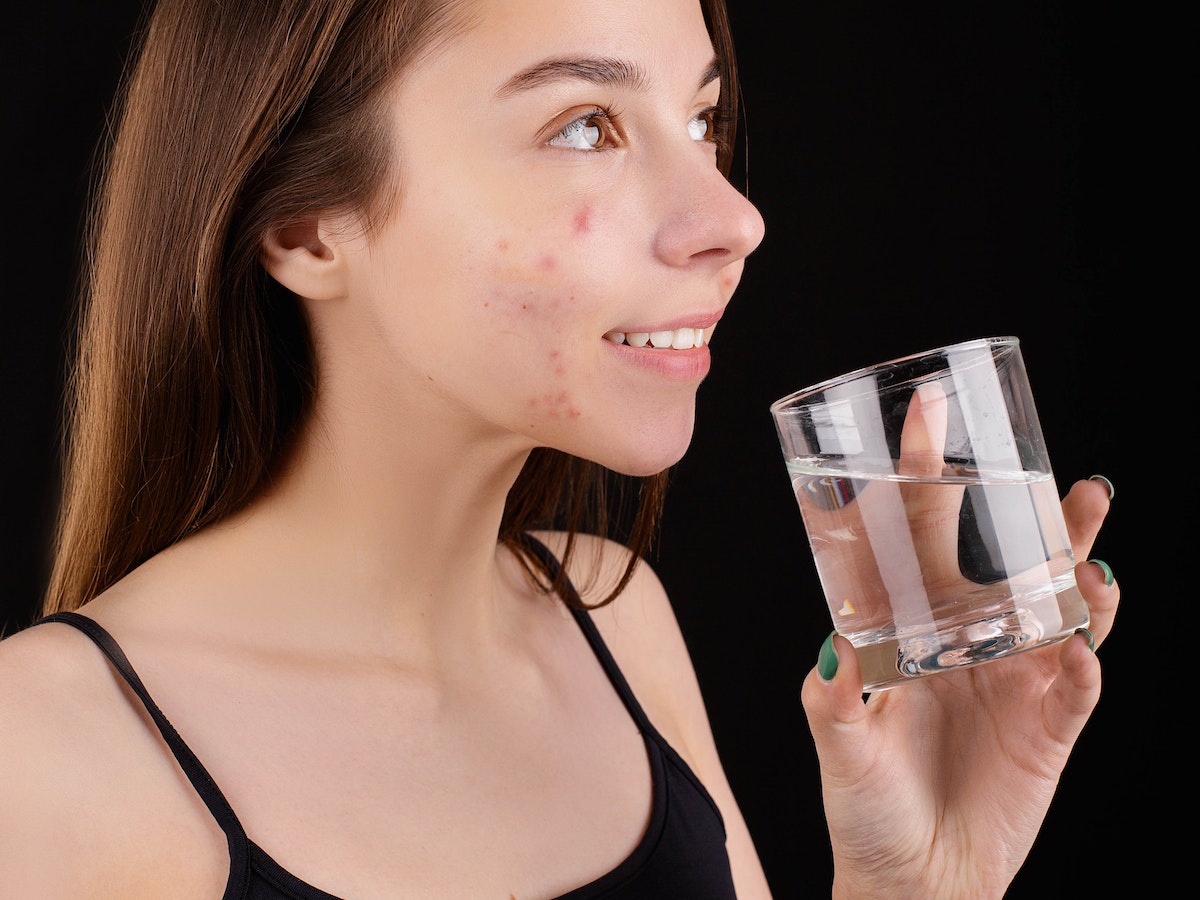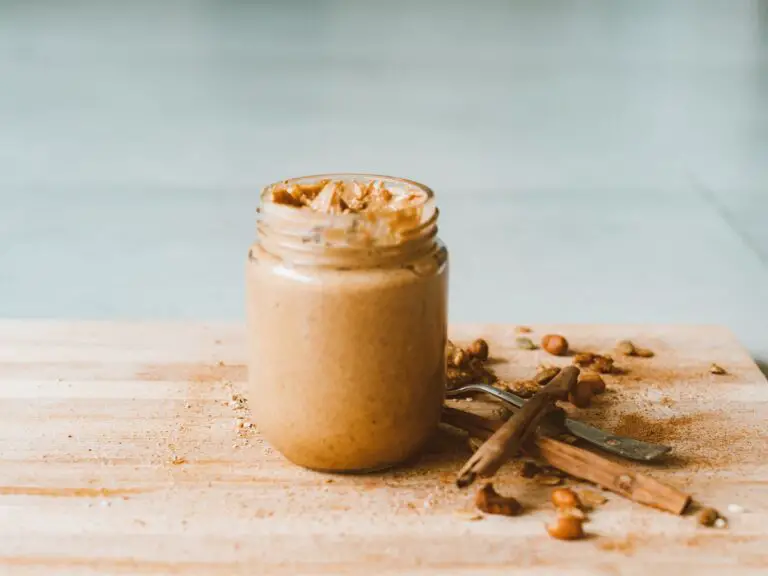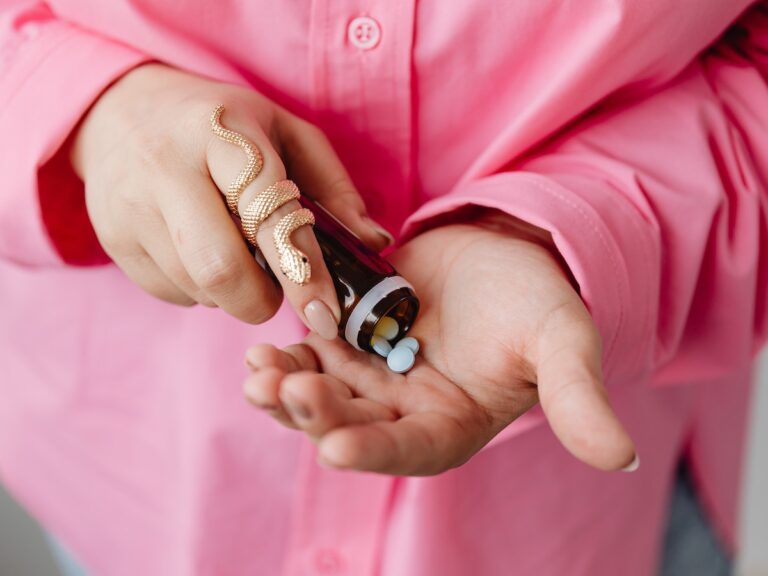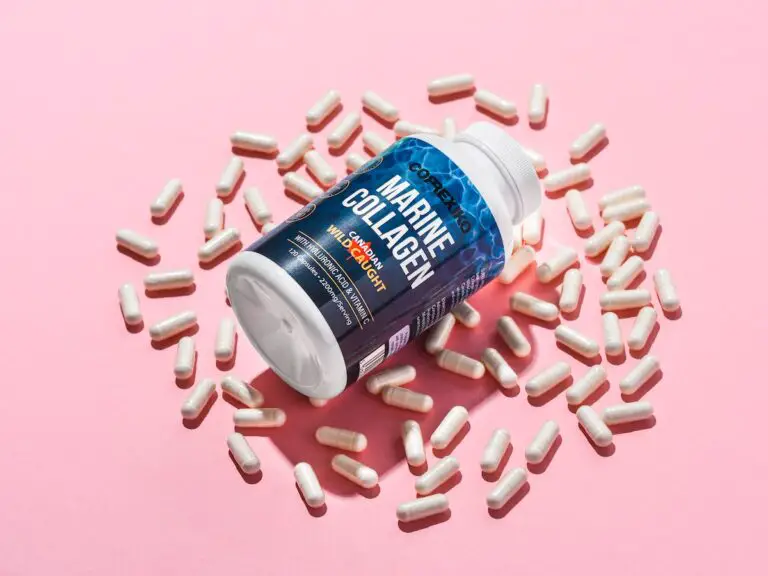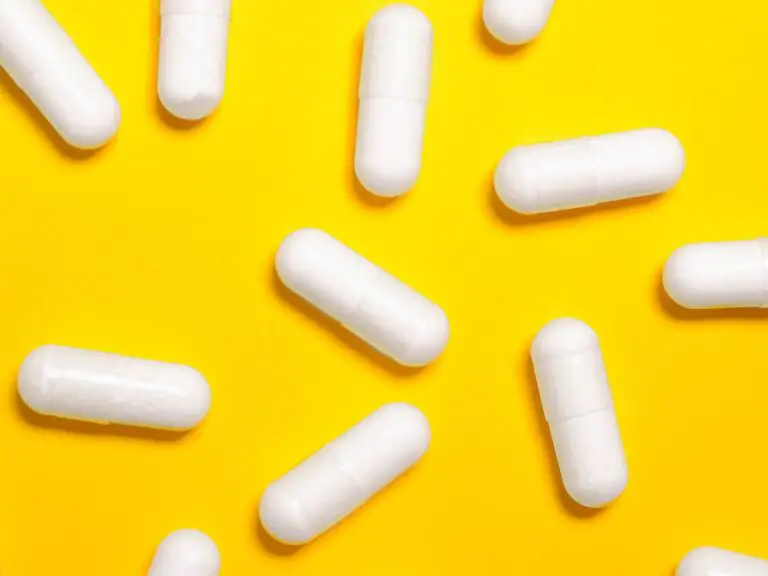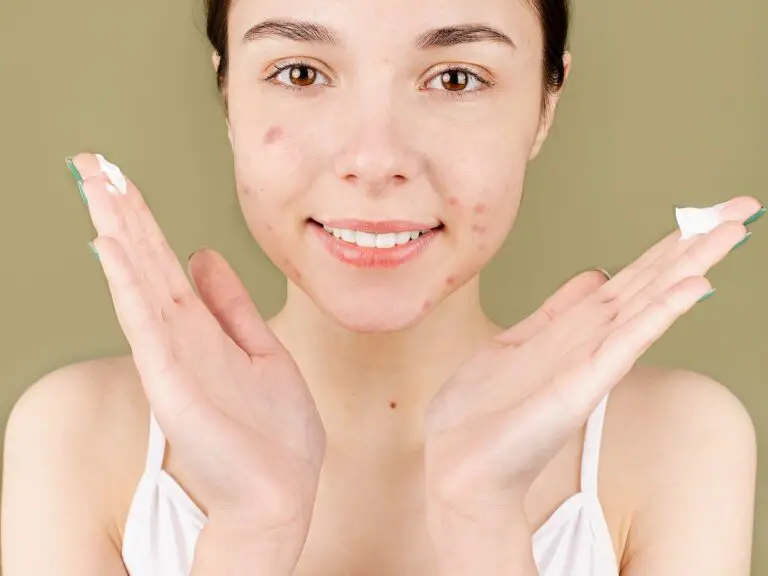Does Drinking Water Help Acne Scars?
Are you sick of trying to get rid of acne scars that won’t go away? If so, it’s time to end your interest and jump into a cool pool of information. We all know that water is important for our health, but can it help get rid of those annoying scars from old breakouts?
This blog post looks at the interesting link between staying hydrated and healing scars. Get ready to learn something useful as we discover the truth about drinking water and how it might affect acne scars.
So grab a glass of water and start this educational trip together!
Table of Contents
Understanding Acne Scars
Acne scars can be annoying reminders of past breakouts, and many people want to find ways to make them less noticeable. Before you can do anything about acne scars, you must know what they are and how they form.
When pimples or blemishes enter the skin deeply, they can damage the underlying tissue. This starts the body’s natural healing process, which makes the body make more collagen to try to fix the damaged area. But sometimes, this process causes the body to make too much or too little collagen, leading to different kinds of acne scars.
There are different kinds of acne scars, such as atrophic scars, which are flat, and hypertrophic scars, which are raised. Atrophic scars are often small depressions or pits on the skin’s surface, while hypertrophic scars are raised scar tissue that forms when the body makes too much collagen while healing.
It’s important to remember that drinking water may not directly get rid of acne scars on its own. While proper hydration is crucial for general skin health and healing processes, it cannot magically erase existing scar tissue. But staying hydrated by having enough water throughout the day can indirectly help your skin by keeping your body healthy and helping it do what it’s supposed to do.
In addition to drinking enough water to keep your body hydrated from the inside, there are other things you can do to help improve the look of acne scars. Some of these are topical treatments like retinoids or vitamin C serums, which help the body make more collagen, and exfoliating regularly with gentle products to speed up the change of skin cells.
A healthy lifestyle, like a balanced diet full of fruits and veggies, can also give your skin the nutrients it needs to heal. Using sunscreen to keep your skin from getting too much sun is also a key way to stop more damage that could worsen scars.
Some mild acne scars may react well to home remedies and over-the-counter treatments. However, scars that are more severe or don’t go away may need professional help. Chemical peels, microneedling, and other treatments can be offered by dermatologists.
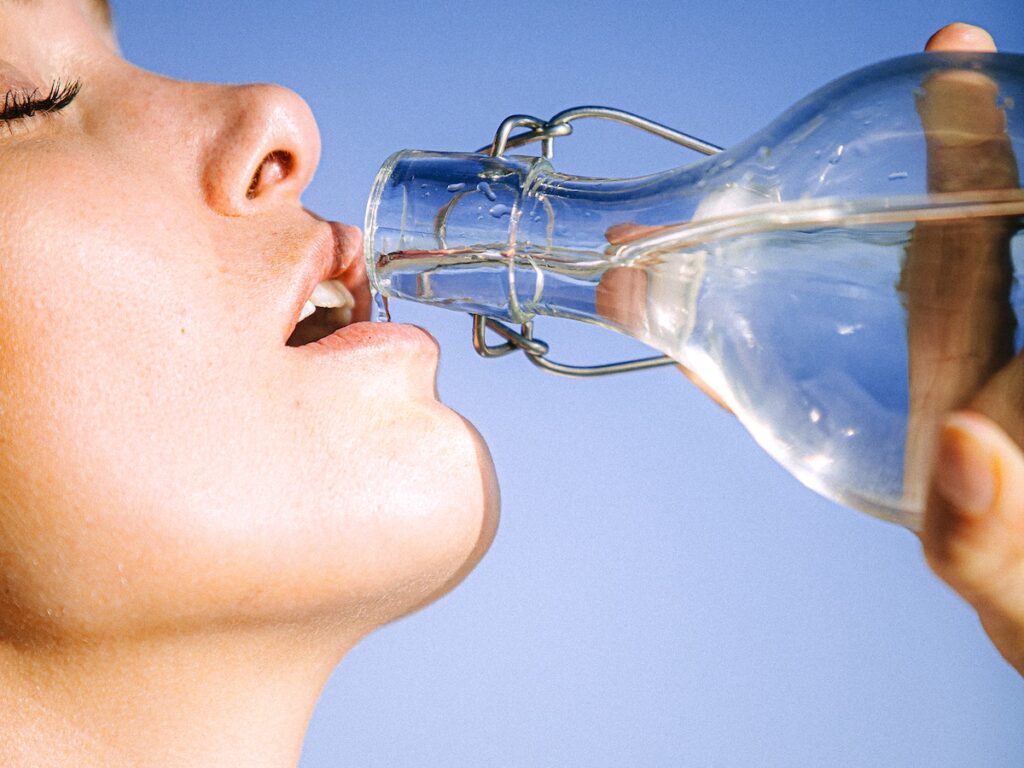
The Role of Water in Skin Health
People often say that water is a magic cure for different health problems, and this is not an exaggeration when it comes to skin health. Staying hydrated is important to keeping your face healthy and helping acne scars heal.
Hydration is key to feeding your skin cells and keeping your skin healthy. When you drink enough water, you help eliminate toxins in your body. This can help your skin look better and healthier.
Keeping yourself well-hydrated also helps your face keep its elasticity. This means any scars or marks left by acne are less likely to stand out.
Also, drinking enough water helps your blood move around your body better. This makes it easier for important nutrients and oxygen to get to your skin cells, which helps them fix themselves and get healthier.
It’s important to remember that drinking water alone probably won’t make acne scars go away fast (unfortunately), but it does play a big part in keeping your skin healthy overall.
So ensure that getting enough water is a top priority in your skincare practice.
Remember, though, that there is no one magic cure for acne scars. Instead, you need a complete plan that includes good nutrition, a consistent skincare routine that is tailored to your needs, and, if necessary, other scar management techniques.
Hydration and Scar Healing
Hydration plays a crucial role in maintaining overall skin health and can also affect scar healing. When our bodies are getting enough water, our skin is better able to work well and heal itself.
The skin stays fresh from the inside out by drinking water. It helps the body get rid of toxins, which can cause acne and make scars take longer to heal. Drinking enough water helps your body’s natural processes of cell renewal and collagen production, which are both important for healing scar tissue.
Also, having enough water can help improve how well the blood flows. This is important so oxygen and nutrients can get to the damaged cells and help them heal faster. Proper hydration also keeps the skin flexible, making scars less noticeable.
But it’s important to note that while staying hydrated can help scars heal, water may not be enough to remove all acne scars. It should be used as part of a full plan that includes a good skincare routine and professional treatments if necessary.
Remember that everyone’s skin is different, so what works for one person might not work for another. It’s always best to talk to a dermatologist or other skin care expert who can advise based on your needs.

Complementary Approaches for Scar Management
If you only drink water to care for acne scars, you might not get the desired results. But scars can be less noticeable, and the skin can be healthier if you use other methods besides staying hydrated.
- Topically: Using creams or ointments with chemicals like retinol, vitamin C, or hyaluronic acid can help make acne scars look better. These items help scars heal by speeding up the turnover of cells and making more collagen.
- Micro-needling: A device with fine needles is used to make tiny holes in the skin during this minimally invasive treatment. It makes your body make more collagen and makes acne scars smoother over time.
- Chemical Peels: A chemical solution is put on the skin, which causes it to peel off in a controlled way, showing skin that looks younger and healthier. Chemical peels can help make acne scars less noticeable by making new skin cells.
- Laser Therapy: Different laser treatments target different parts of scar tissue, such as redness or an uneven appearance. These procedures help rebuild collagen and make the face smoother.
- Dermabrasion: A rotating brush or diamond wheel is used to scrape away layers of damaged skin from the surface. This makes room for new skin cells to grow over time.
Remember that everyone’s experience with scar management can differ, depending on their age, the severity of their scars, and general health.
Lifestyle Factors and Acne Scars
The way we live can have a big effect on the health of our skin as a whole, including its ability to heal and grow back. When treating acne scars, your lifestyle can either slow down or speed up the process.
First and foremost, if you want good skin, you need to eat well. Fruits, veggies, whole grains, and lean proteins are good examples of foods full of vitamins and minerals that are good for your skin. It’s also important to stay away from prepared foods that are high in sugar and bad fats.
Regular exercise is good for your health as a whole, and it also helps the blood flow to your skin. This increased blood flow helps give oxygen and nutrients to damaged tissues, which aids in scar healing.
Stress management is another important part of keeping your face healthy. Chronic worry causes hormones to be released, which can cause inflammation in the body and on the skin, making scars take longer to heal. Meditation and yoga are ways to relax that can help lower stress.
Taking care of your face well is also important if you want scars to heal well. This means washing your face twice daily with a gentle cleaner made for your skin type and using moisturizers that won’t clog your pores but will keep your skin soft.
Wearing sunscreen daily will protect your skin from damaging ultraviolet (UV) rays, which is important if you already have acne scars. Scars can cause uneven coloring, getting darker when exposed to UV light.
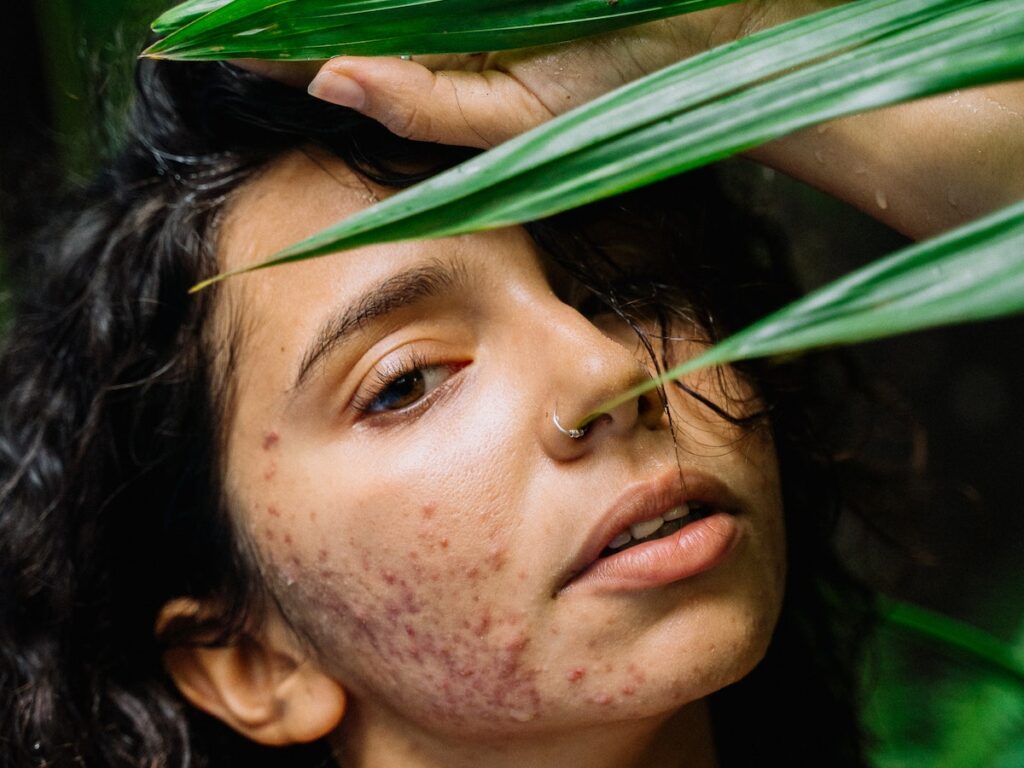
Professional Scar Treatment Options
When it comes to getting rid of acne scars, some skilled treatments can help your skin look better. Most of the time, dermatologists or other trained skin care professionals with scar management experience do these treatments.
Laser therapy is a common choice. It uses focused beams of light to target scar tissue and break it down. This helps the body make more collagen and renew the skin, making scars less noticeable.
Microdermabrasion is another effective treatment. This is when tiny crystals gently remove the top layer of skin, which helps new skin cells grow.
Chemical peels are another popular way to get rid of scars. They involve putting a chemical solution on the skin, which makes it peel off and show smoother, less damaged skin underneath. In some cases, dermal fillers may fill in scars and make the skin’s surface more even.
You might want to try micro needling or subcision for more serious scars. With micro-needling, tiny needles create controlled micro-wounds on the skin to boost collagen production and improve smoothness. Subcision is a surgical procedure that breaks scars stuck together by putting a needle under the skin’s surface.
It’s important to remember that these professional treatments should only be done by trained experts who can evaluate your needs and suggest the best way to help you.
Remember that professional scar treatments can help make acne scars look better, but they might not get rid of them fully. It’s important to have reasonable goals for what these treatments can do.
Talk to a doctor or other skin care professional if you want professional scar treatment. They can help you figure out the best way to treat your scars.
Debunking Misconceptions and Myths
When it comes to acne scars, there are a lot of myths and false beliefs out there. Let’s clear up some of these common mistakes and set the record straight.
Myth 1: Acne scars can be completely gone by just drinking water.
Even though staying hydrated is important for the health of your skin in general, drinking water won’t suddenly get rid of acne scars on its own. Acne scars need more specific treatments than just keeping the body hydrated.
Myth #2: Water can heal acne scars right away.
Water is very important to keep your skin healthy, but it doesn’t heal acne scars directly. Healing a scar is a complicated process that takes more than staying hydrated.
Myth #3: Keeping your face away from water will help you avoid or get rid of acne scars.
Some people think that if they keep their face dry, they can avoid or get rid of acne scars. But this is not true. Cleansing with gentle products and moisturizing are two important parts of a good skin care practice.
Myth 4: You only need to drink water; other things about your life don’t matter.
Even though staying hydrated is important, there are other things you can do to take care of your face and scars. Getting healthy-looking skin depends on what you eat, how much stress you have, how well you sleep, and how you care for your face.
By putting these myths to rest, we can see that water is important for our general health and keeping our skin healthy, but it can’t get rid of or heal acne scars. To effectively treat acne scars, you must take a complete approach that includes professional scar treatments tailored to your needs and a full skincare routine.
Conclusion
Drinking water for health and hydration may not help acne scars. Proper hydration can help the body heal and maintain good skin. Manage acne scars holistically. Staying hydrated and following a customized skincare routine and professional advice is crucial. Lifestyle affects skin health too. Balanced nutrition, exercise, sleep, and stress management promote skin health and scar repair.
Consider professional scar treatment for severe acne scars. Dermatologists recommend laser therapy, chemical peels, microneedling, and dermal fillers. Understanding water’s significance in skin health, complimentary scar management methods, and today’s expert therapies will help you treat acne scars.
Hydrate and eat healthy to nourish your skin from within. Remember that everyone’s path to clear, smooth skin is different, so be patient!
FAQs
Even though staying hydrated is important for your skin’s health, no exact amount of water will help acne scars. Drinking the required amount of water, usually, 8 cups or 64 ounces per day, can help keep your skin moist and improve overall health. But other treatments, like topical creams, chemical peels, or laser techniques, may be better for treating acne scars.
Even though staying hydrated is important for the health of your face, drinking water alone may not get rid of acne scars or marks. Water helps keep the skin hydrated, which can improve its elasticity and structure. However, topical creams, chemical peels, or micro-needling are often more effective at removing acne scars. It’s best to talk to a doctor about how to treat acne scars and marks.
Drinking water can help your face but may not help fade acne scars immediately or directly. The time it takes for acne scars to fade depends on many things, like how deep the scars are, how each person’s skin is, and what treatments were used. Acne scars may get better over time if you consistently drink enough water, take care of your face, and get professional scar treatments. It is best to talk to a dermatologist for personalized advice and treatment choices.
Drinking enough water is important for general skin health, but drinking too much water won’t directly help acne or scars heal faster. Even though staying hydrated helps keep skin flexible and helps it heal, other things like good skin care, a healthy diet, and acne treatments are more effective at treating acne and lowering scars. It’s important to talk to a dermatologist for individualized help and a complete treatment plan for acne and scars.
Drinking enough water can help keep your skin healthy and give you a more hydrated appearance. Even though water may not directly remove acne scars, staying hydrated can help the skin renew and keep a healthy layer. Staying hydrated can also make other ways to treat acne scars work better and help your skin look brighter and more even-toned. For the best results with acne scars, drinking a lot of water and using focused skin care products and professional treatments are important.

General Physician
Senior Medical Writer
